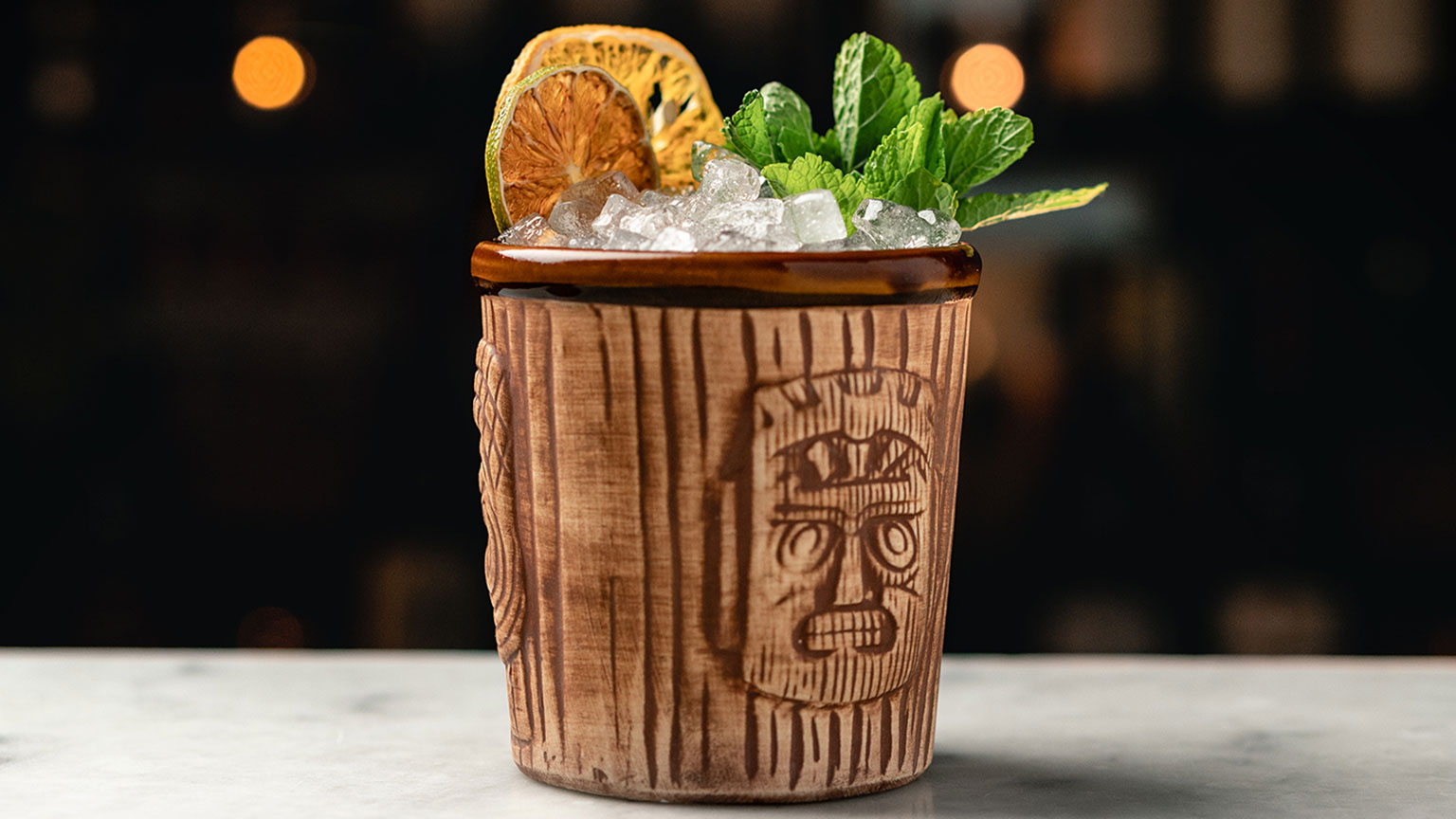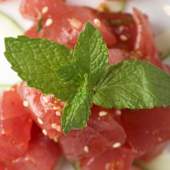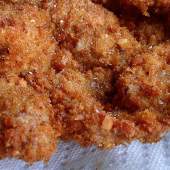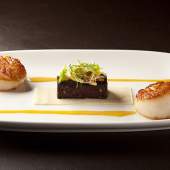Tiki Bars

“If you can’t get to paradise, I’ll bring it to you.”
“When that old demon rum slips past the lips, it still works its ancient, cheerful magic.”
–Ernest Raymond Beaumont Gantt, alias Donn Beach, alias Don the Beachcomber
"Anyone who says I didn't create this drink is a dirty stinker."
–“Trader” Vic Bergeron, on the Mai Tai
A balmy, rum-soaked, tropical escape for the price of a drink. Doesn’t that sound great, especially during a Chicago winter? Look no further than the fabulous tiki bar, an institution (and possibly a cult with lots of members) that originated not in the South Pacific nor the Caribbean, but right here in the United States. And it all started in the 1930s, as the brainchild of one inveterate traveler who longed to share the island culture he loved with his fellow Americans.
Ernest Raymond Beaumont Gantt (who later legally changed his name to Donn Beach – why not?) was a World War II veteran and bootlegger who traveled extensively through the South Seas on business. Upon his return stateside in 1934, this colorful character, benefiting from the recent repeal of Prohibition, used what he learned about island culture and lifestyle to open his first bar in Los Angeles, Don the Beachcomber. Donn Beach is generally credited with kickstarting the tiki movement.
Don the Beachcomber was true to its name – the original bar was decorated with masks, fisherman’s nets, bamboo, driftwood, and other trinkets that were salvaged from Pacific beaches (or made to look as if they were). Its food offerings, as you might expect, were mostly seafood (notably, the ubiquitous “pu-pu platter,” an appetizer of kebabs that arrived at your table on a lazy Susan with its own miniature hibachi grill) with the occasional steak dish or salad thrown in for variety. But of course, Don the Beachcomber’s main attraction was its large, complex, fruit-and-rum, garnished-with-a-tiny-umbrella cocktails, famously served up in coconut shells or mock monkey skulls by Hawaiian shirt-clad bartenders.
At the height of his success, Donn Beach was operating 17 Don the Beachcomber establishments around the country, including one in Chicago at 101 East Walton Place (across the street from what is now Bloomingdale’s) that opened in 1940 and was a hotspot until at least the late 1960s. The restaurant’s interior was described by a fan: “The building had a simple entrance, with a large neon sign in the trademark Don the Beachcomber driftwood sign shape. Inside, the restaurant had several rooms: the Tahitian Room and the Zombie Room were dining rooms, and the Cannibal Room was the bar. The bar had striking black posts carved with a stacked trio of Tahitian cannibal tikis. The whole restaurant was thoroughly encrusted with bamboo, and float lamps and beachcomber lamps were everywhere.” Sadly, the original Don the Beachcomber in Los Angeles finally closed in April 2018, a victim of rent hikes and the encroachment of developers.
Shortly after the original Don the Beachcomber opened, a worthy competitor arrived on the culinary scene: Victor Bergeron, a San Francisco restaurateur who in 1934 had opened a modest little luncheonette and beer parlor, Hinky Dink’s. Deciding to catch the South Pacific wave, he reimagined his eatery into what eventually became the wildly successful Trader Vic franchise, still going strong with restaurants all over the world, branded food products, and wholesale merchandise distribution (where else can you get a Suffering Bastard mug?). Like his rival Donn Beach, Vic anticipated customers’ yen for a relaxing island escape, and his establishments provided just that. Interestingly, most of the Trader Vic restaurants were located in hotels, and The Palmer House famously hosted a Trader Vic on its lower level from 1957 through 2005. (A subsequent relaunch in Newberry Plaza failed; probably in part because it wasn’t hotel-adjacent, and therefore was too far from the tourist track.)
But if there is one adage that applies to the restaurant industry, it’s that everything old (or retro, anyway) is new again. And the tiki bar is coming back in a big way. Chicago boasts a number of them, including this week’s Lost Lake in Logan Square, Three Dots and a Dash in River North, Island Party Hut on the city’s downtown Riverwalk, Trader Todd's in Lakeview, and Hala Kahiki Tiki Bar & Lounge in River Grove, among others.
So kick back, don that Hawaiian shirt, indulge in a Mai Tai or a Zombie or a Scorpion, order the pu-pu platter, and imagine just for a moment that you’ve been transported to a tropical paradise. Donn Beach and Trader Vic would surely want you to.





